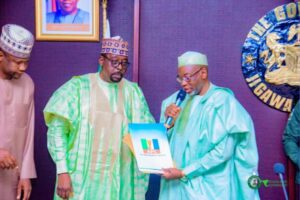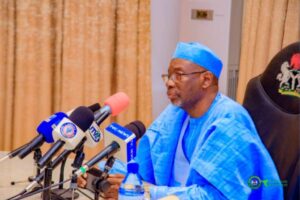The Registrar of the Architects Registration Council of Nigeria (ARCON), Umar Murnai, has called on the National Assembly to expedite action on the law that will give legal backing to the National Building Code.
Murnai said the absence of an enabling legislation for the document has been an impediment to its ineffectiveness in regulating procedures and processes in the real estate industry.
He spoke in Abuja during a week-long event by the Council for the Regulation of Engineering in Nigeria (COREN), where engineers within and beyond the country gathered to discuss “Domestication and Development of Codes, Standards and Regulations as Panacea for Engineering Infrastructural Failure in Nigeria.”
Speaking on “National Building Code: “Challenges and Solutions for Modern Infrastructure”, Murnai said, the code was yet to be backed by any legislation, hence most professionals were yet to accept it as a document to guide let alone the public who are apprehensive of new ideas.
He said the code provides that state governments and the Federal Capital Territory (FCT) should domesticate the document, but wondered how many of the states have the full document in operation and domesticated.
According to him, the code was aimed at establishing minimum requirements to safeguard public health, safety and welfare in the process of predesign, design, construction and post-construction stages of the life cycle of buildings.
He added that by implication it applies, in terms of control of matters on the design and specifications, cost effectiveness, construction, alteration, addition to, moving, demolition, location, repair and use of any building or structure, for existing or proposed building work.
“Building code and regulations exist to safeguard the public health and general welfare from fire and other hazards attributed to built environment.
“It is to establish minimum requirements to safeguard public health, safety and general welfare in the processes of predesign, design, construction and post-construction stages of the life cycle of building and structures.
The building regulatory system is to minimize the risk commonly associated with buildings such as fire, structural integrity, means of escape in an emergency and so forth” the ARCON boss said.
“The code was produced and approved in the year 2006 for use in Nigeria. It is to among others address incessant collapse of buildings, fire incidents in buildings and other disasters; dearth of referenced design materials for professionals; use of non-professional; use of untested products and materials; inadequate planning of our towns, cities and other built environment abuses; lack of adequate regulations and sanctions for non-compliance; inadequate database to aid sustainable building process.
Apart from the lack of legal framework for the code despite its existence since 2006, Murnai also said that the code is confronted with other obstacles that need careful analysis in order to comprehend and find solutions for modern infrastructural development.
Murnai said that the major challenges could be attributed to the complexities in the building code, lack of capacity building among the relevant stakeholders, lack of technical training of building code users and assistance, lack of legislation for enforcement and compliance, inadequate awareness and government attitude are militate against the development of the national building code.
But, he noted that, most of these challenges could be minimized through proactive, training, raising awareness, provision of resourceful technical support to the code users so also legislation on the enforcement and compliance, simplifying the code requirements and domestication by state governments.





